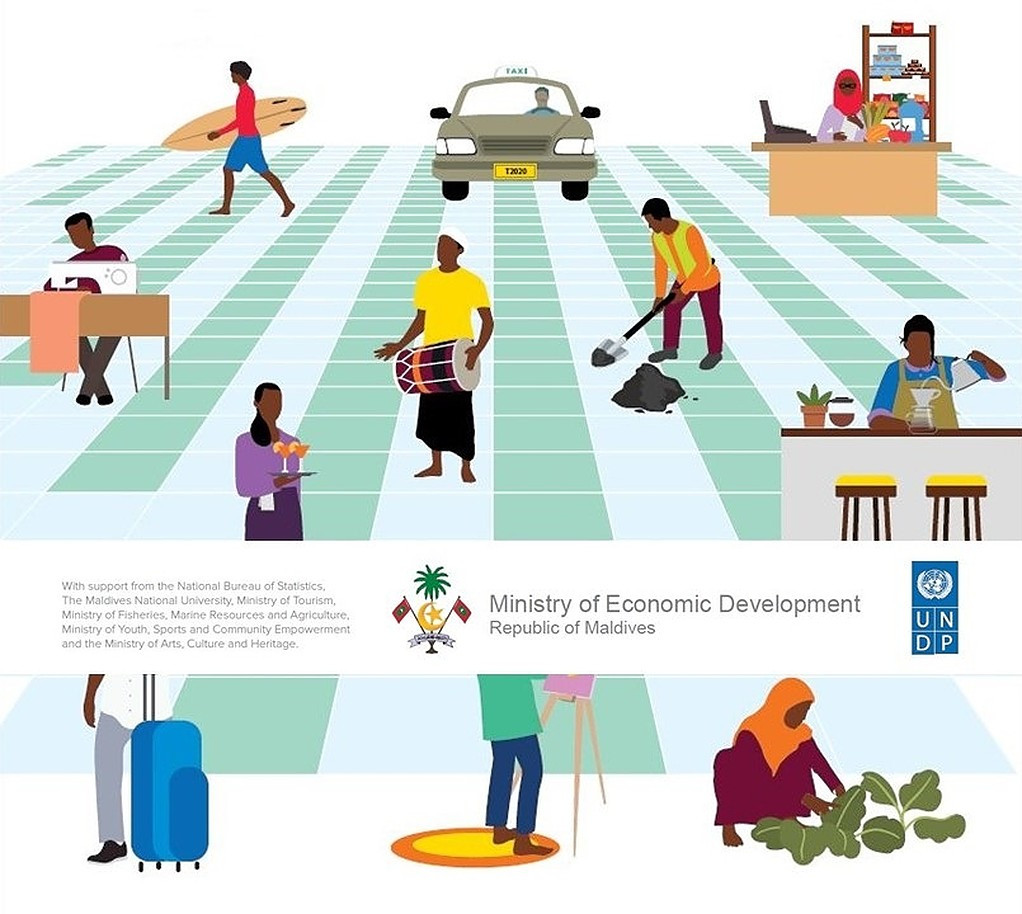

Assessment Reveals Socio-economic Impacts Hit the Maldives Early and Hard Before Virus Did
Wednesday 26th of August 2020
Assessment Reveals Socio-economic Impacts Hit the Maldives Early and Hard Before Virus Did
The final report of the Rapid Livelihood Assessment, to understand impact of the COVID-19 crisis in the Maldives, has revealed the immediate and widespread impact on employment and livelihoods - hitting the most vulnerable the hardest, with a significant impact on Micro-, Small and Medium-sized Enterprises (MSMEs).
The assessment is commissioned by the Ministry of Economic Development, and the Government of Maldives, with technical support from UNDP Maldives, in close collaboration with relevant government and non-government partners – including private sector partners – drawing from global experience in carrying out similar impact assessments during crises.
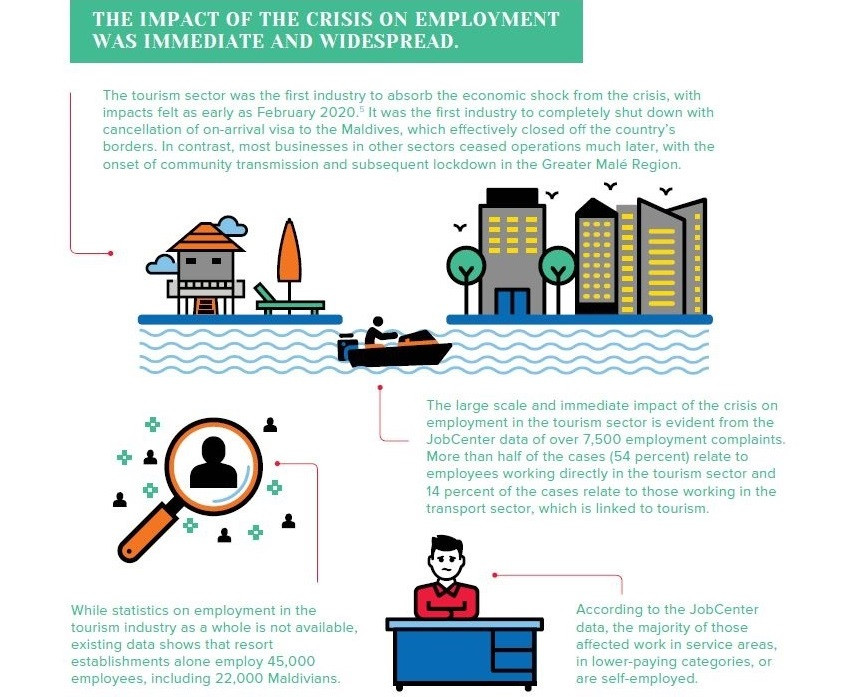
“The UNDP Rapid Assessment was integral information to the initial economic relief response; and would be so in the future as well in our recovery efforts to create a coordinated and focused approach to build back stronger and more resilient employment and livelihoods,” stated Uz. Fayyaz Ismail, Minister of Economic Development.
The Rapid Livelihoods Assessment is being conducted with support from the National Bureau of Statistics, Maldives National University, Ministry of Tourism, Ministry of Fisheries, Marine Resources and Agriculture, Ministry of Youth, Sports and Community Empowerment and the Ministry of Arts, Culture and Heritage.
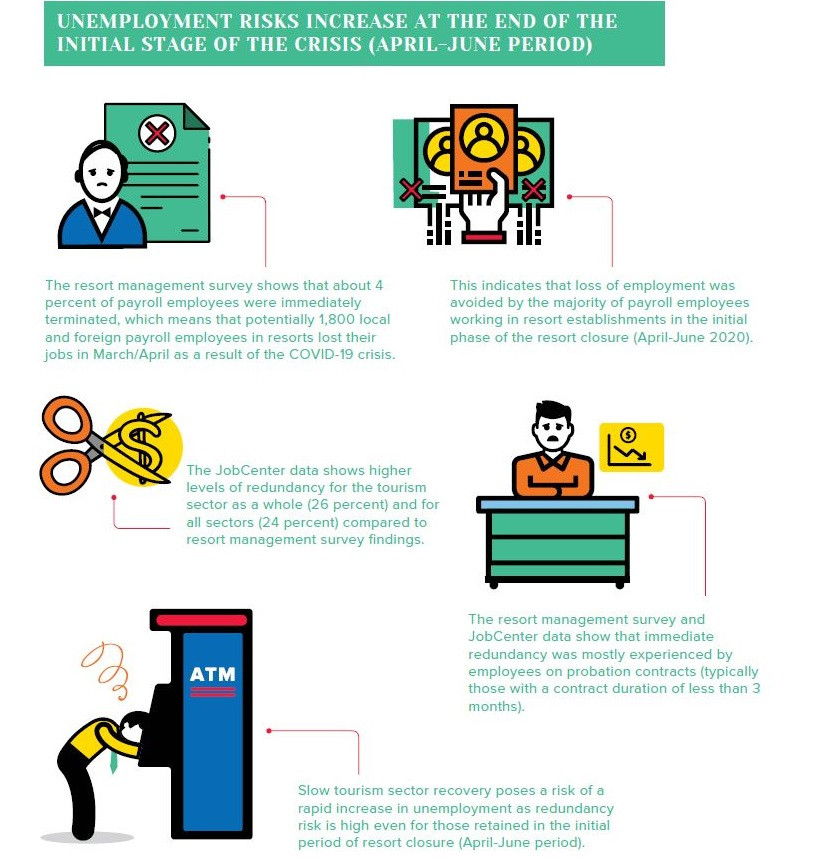
“The impact of COVID-19 on Small Island Developing States, like the Maldives, is more severe because of the country’s high dependence on tourism and the import of oil and food. The severe economic and social impacts of the pandemic thus hit the country early and hard before the virus directly did,” said Kanni Wignaraja, Assistant Secretary-General and UNDP Regional Director for Asia-Pacific.
The following outlines some of the key findings of the final assessment:
• The impact of the crisis on employment was immediate and widespread, with the tourism sector being the first to absorb the economic shock from the crisis. It was the first industry to completely shut down with the country’s borders closed. In contrast, most businesses in other sectors ceased operations much later, with the onset of community transmission and subsequent lockdown in the Greater Malé Region.
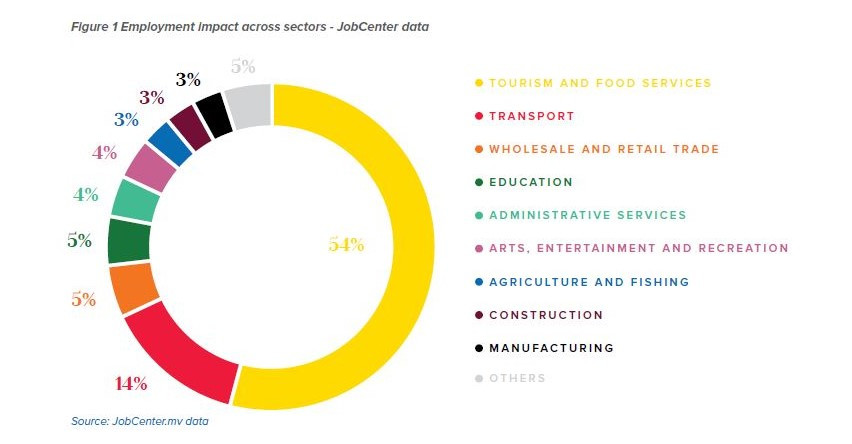
• Key employment impact was in the form of redundancy, no pay or reduced pay. According to data for the tourismcsector, 31 percent reported redundancy/complete loss of income, 30 percent reported no pay leave, and 39 percent reported receiving partial pay.
• Unemployment risks increase at the end of the initial stage of the crisis from the April to June period: slow tourism sector recovery poses a risk of a rapid increase in unemployment.
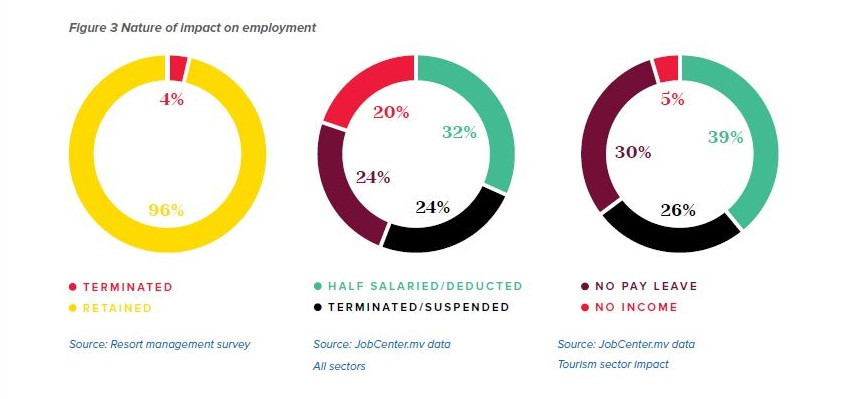
• Immediate and substantial income loss was experienced by the employed population: Data shows that 2,400 tourism sector employees were faced with complete income insecurity as a result of the COVID-19 crisis.
• Groups most vulnerable to facing early employment loss include: young people, employees on probation contracts, third-party contract employees of resort establishments, casual migrant workers, the self-employed, and freelancers and community vendors.
• Women were disproportionately affected. Despite the low number of women reporting employment complaints, redundancy and complete loss of income was higher for women than men. Increasing unemployment pressures may push these young women out of the labour force permanently or may prevent young women from entering the labour force altogether.
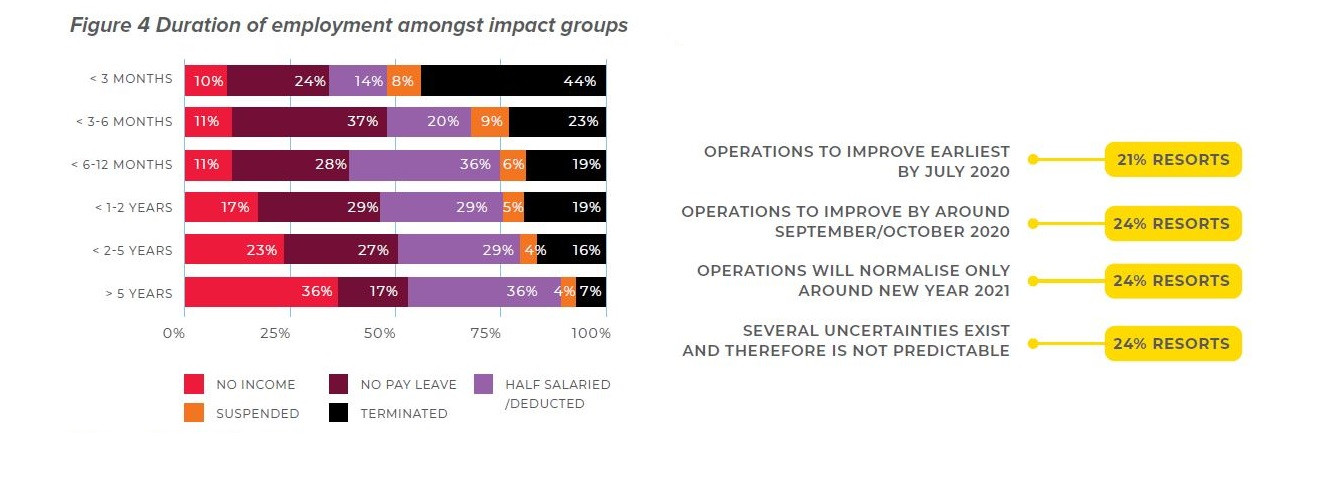
• Impacts on MSME operations revealed businesses in tourism services and support services of tourism were the first to be impacted from international and Maldivian border closure.Restricted inter-island travel and movement to and from the Greater Malé Region brought about major supply disruptions for businesses across the country. Almost all businesses reported that their cashflow was affected. The majority of businesses indicated that they were already struggling, while only a small proportion could manage their cashflow up to three to six months.
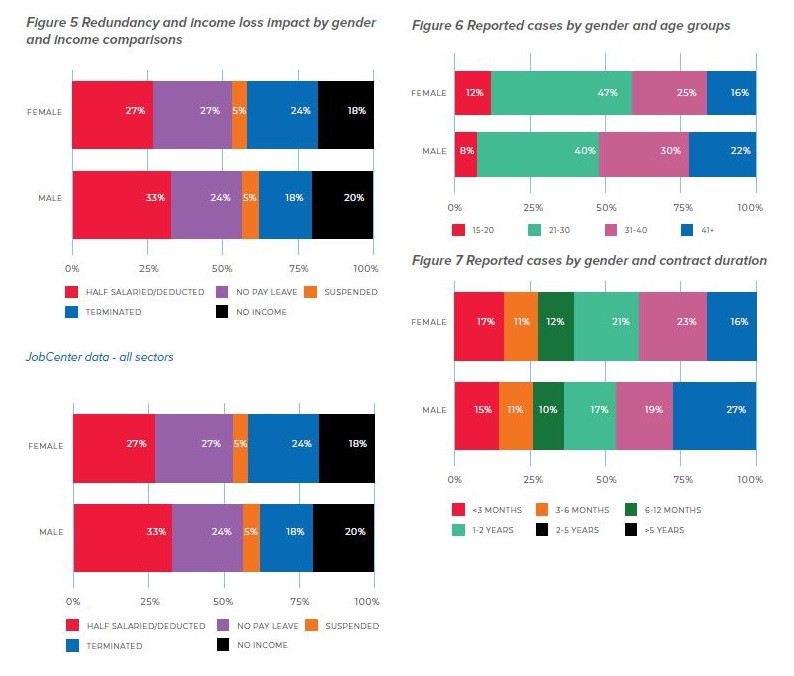
• Challenges to doing business in the new normal included; barriers to access finance, limited access to business support services, unmet skills requirements in areas of business management, slow technology uptake, limited scale of transition to green/environmentally friendly technology, and weak enforcement of laws that disadvantage MSMEs.
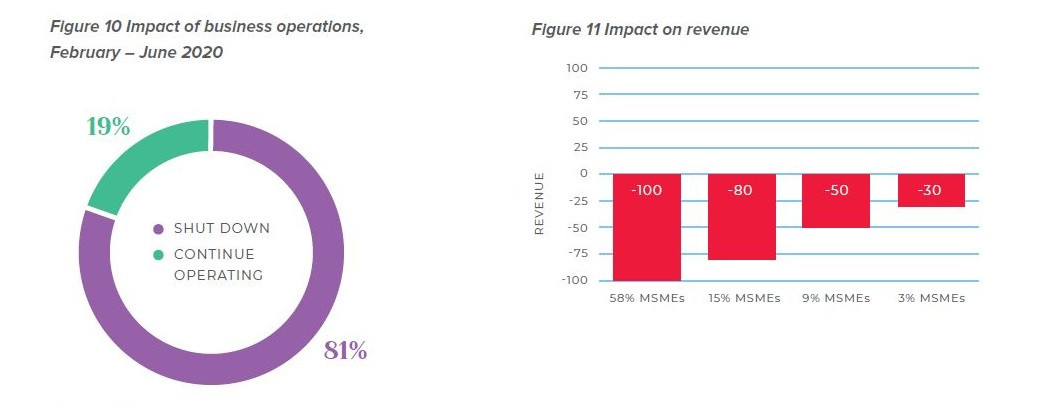
• COVID-19 also showed adaptation by businesses, including opportunities for innovation - the crisis opened doors for new opportunities, especially for women, introduced new ways of doing business, and brought about shifts in behaviour and consumption patterns.
“It is critical that young people and women are not kept out of businesses or opportunities for future jobs, as a result of the COVID-19 impact,” said Akiko Fujii, UNDP Resident Representative in Maldives.
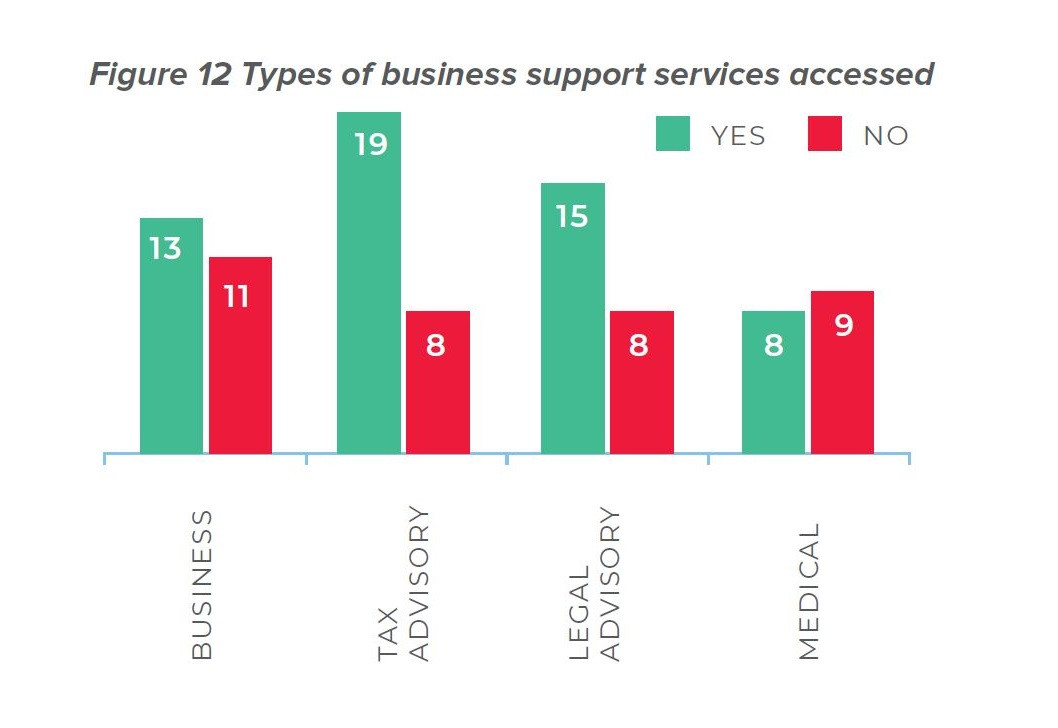
The assessment outlines recommendations to ‘Build Forward Better, Bluer and Greener.’ It is focused on mitigating the short-term negative impact on employment and MSMEs, due to the COVID-19 economic crisis. It also proposes an economic recovery framework that will be implemented in the medium to long term, taking advantage to convert existing economic vulnerabilities into opportunities for the future.
Given the heavy reliance of the economy on tourism, the restoration of employment and rehabilitation of MSMEs depend heavily on the recovery of the tourism sector. The government, in collaboration with all actors, need to develop a coordinated strategy for tourism recovery for the upcoming high season of tourist arrivals.